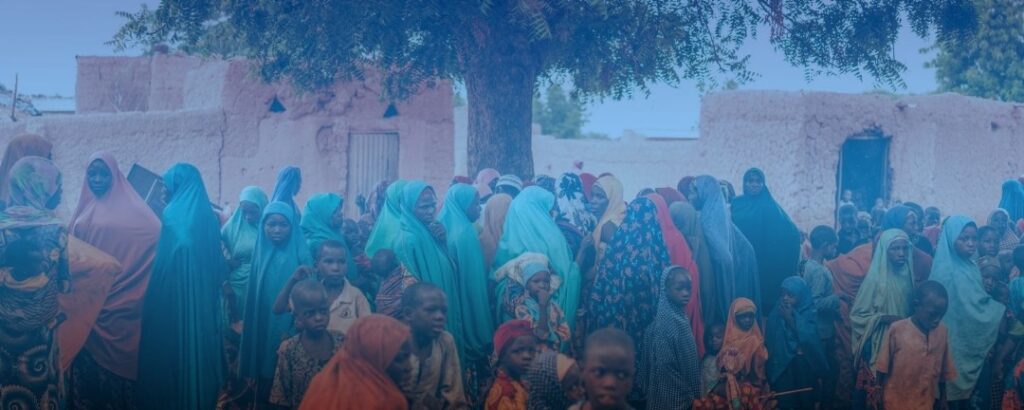A child’s first right is the right to be seen, yet millions across the world are denied this from birth. Without a birth certificate, a child becomes invisible to the very systems designed to protect them. In Nigeria, this invisibility fuels a cycle of exclusion, from vaccination to education to social protection and quietly erodes progress toward universal health coverage and equitable development.
At ACE Strategy and Consults, we recognize that the absence of a simple document can undermine even the strongest public health interventions. Through our work in states like Gombe and Zamfara, we have seen how data invisibility creates tangible inequities children missed in vaccine allocation, mothers turned away from health services, and communities left behind in development planning.
When a Child Is Not Counted, a Nation’s Plan Fails
Every public health plan begins with numbers, but when the numbers are wrong, the plan fails. Across Nigeria, thousands of children remain uncounted because their births were never officially registered. According to UNICEF, 166 million children under the age of five have never been recorded, making them statistically invisible and systematically underserved.
The consequences are immediate. Without legal identity, children often miss out on life-saving vaccines. Globally, one in five children are zero-dose or under-vaccinated, many living in unregistered or hard-to-reach communities. These data gaps distort national health planning, leading to vaccine stockouts in some areas and wastage in others.
An enumeration exercise conducted by ACE Strategy and Consults in Gombe State revealed over 55,000 unregistered children under one year living within just a two-kilometer radius of health facilities a stark illustration of how flawed denominators can cripple service delivery.
Invisible Children, Invisible Systems
When births are not registered, children disappear not only from data but from opportunity. Without proof of identity, access to education, healthcare, and legal protection becomes uncertain. In sub-Saharan Africa, one in five children aged 6–11 is out of school, with lack of documentation cited as a major barrier.
The ripple effect extends beyond individuals to the health system itself. In Zamfara State, ACE’s enumeration report revealed a 38% discrepancy between projected census data and actual under-two population figures. Such inaccuracies compromise microplanning, resource allocation, and human resource deployment, making it nearly impossible to achieve efficiency or equity.
From Invisibility to Inclusion: ACE’s Approach
Solving this challenge requires moving beyond traditional headcounts to sustainable, digital, and community-integrated systems. At ACE Strategy and Consults, we are helping governments and partners build visibility into the foundation of public health planning through:
- Digital enumeration frameworks: Using tools like Open Data Kit (ODK) to enable real-time, door-to-door data collection that ensures every child is captured and accounted for.
- Data integration and system strengthening: Linking household-level information directly to health facility microplans and supply chain systems to improve vaccine forecasting and service delivery.
- Capacity building for frontline workers: Equipping community health workers with digital tools and training to ensure accuracy, accountability, and sustainability of data.
- Evidence-driven advocacy: Engaging policymakers with actionable insights to close data gaps and prioritize digital birth registration as a core health systems intervention.
Through these initiatives, ACE demonstrates that accurate data is not just a technical requirement it is the foundation of health equity.
A Call to Action: Counting Every Child, Securing
The journey from invisibility to inclusion begins with recognition. A birth certificate is more than a piece of paper; it is a passport to opportunity and protection. For governments and development partners, investing in integrated digital birth registration is a moral and strategic imperative, the first step toward ensuring that no child is left unseen, uncounted, or unprotected.
At ACE Strategy and Consults, we remain committed to helping Nigeria and its partners build systems that see every child, count every life, and plan for every future.
Because visibility is not just a statistic, It is the starting point of justice.
Sources:
-UNICEF. (2022). Birth Registration. https://data.unicef.org/topic/child-protection/birth-registration/
-WHO/UNICEF. (2023). Progress and Challenges with Achieving Universal Immunization Coverage. https://www.who.int/news-room/fact-sheets/detail/immunization-coverage
-Ace Strategy and Consults Limited. (2022). Gombe State Enumeration Report.
-UNESCO Institute for Statistics (UIS). (2023). Out-of-School Children and Youth. http://uis.unesco.org/en/topic/out-school-children-and-youth
-UNICEF. (2023). Child Labour. https://www.unicef.org/protection/child-labour -Ace Strategy and Consults Limited. (2023). Zamfara State Enumeration Report.

